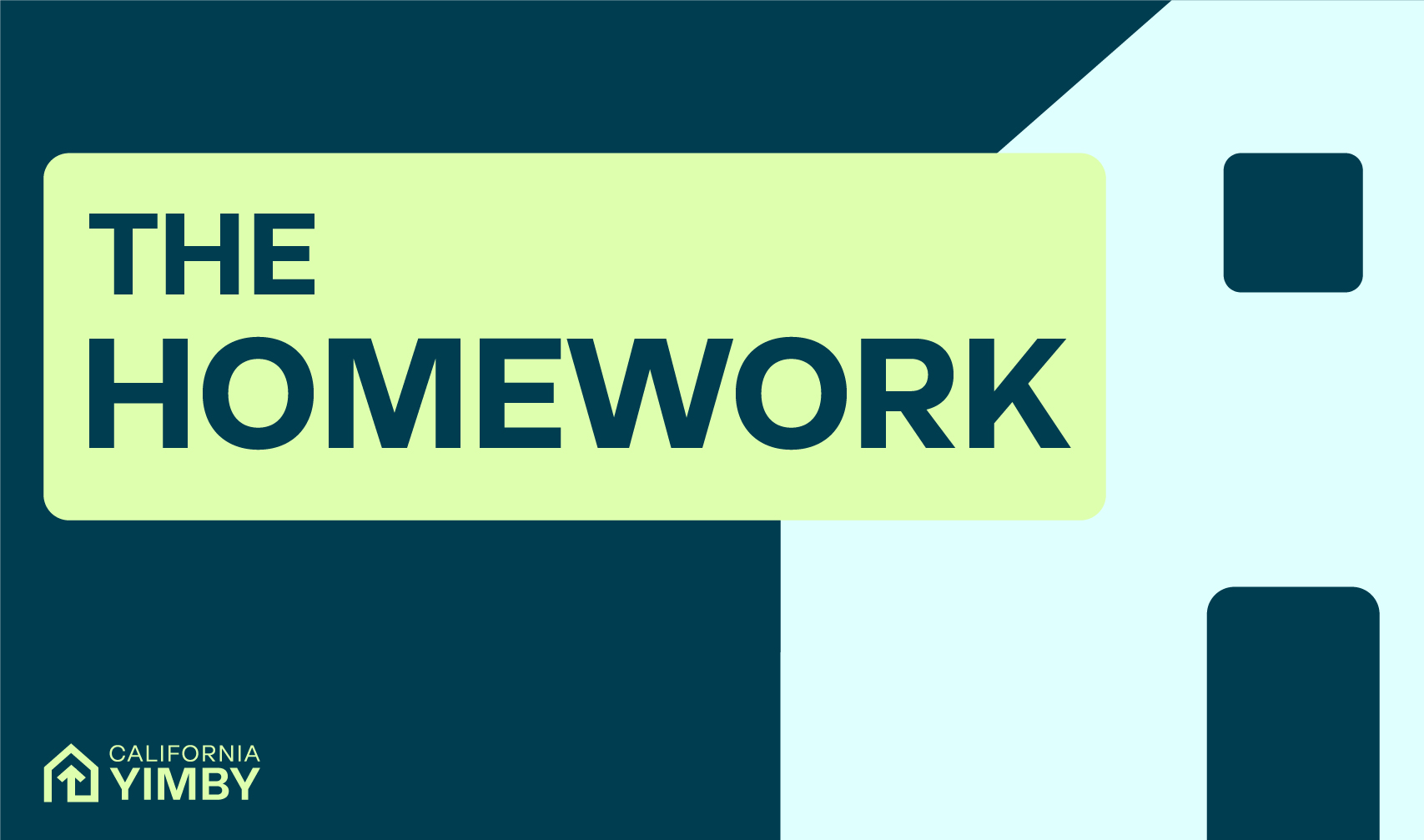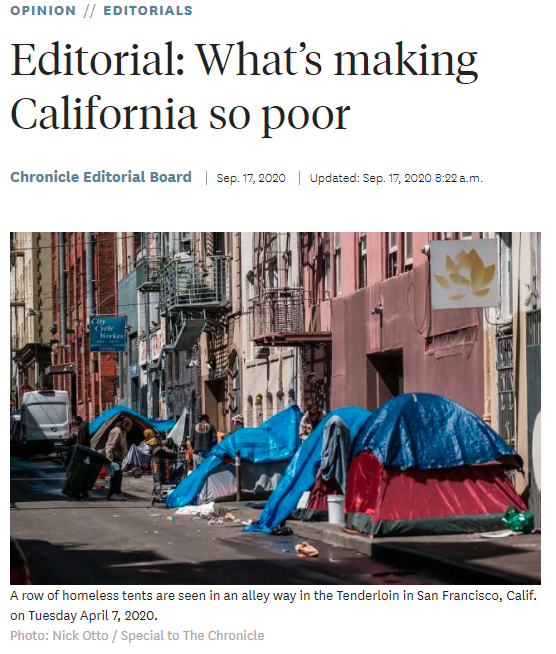The HomeWork: September 23, 2020

Welcome to the September 23, 2020 Main edition of The HomeWork, the official newsletter of California YIMBY — legislative updates, news clips, housing research and analysis, and the latest writings from the California YIMBY team.
News from Sacramento
- AB 69: $500 million revolving loan fund for ADU construction
- AB 434: Streamlines the application for affordable housing funding
- AB 725: Requires at least quadplexes as a part of city housing plans for moderate- and above-moderate-income housing
- AB 831: Fixes technical errors with SB 35 implementation
- AB 1845: Establishes an office to end homelessness
- AB 1851: Allows faith communities to convert existing parking lots to housing
- AB 2345: Improves and expands the existing density bonus law based on a successful program in San Diego
- AB 3182: Prevents HOAs from blocking tenants from living in their communities
In addition to activities in “The Horseshoe” (the Governor’s office in Sacramento), there have been rumors about a special legislative session on housing — but that doesn’t seem to be in the cards. A special session allows the Legislature to meet outside of the normal session to focus on urgent and specific issues. While the Governor has said he is open to the idea of a special session, the only voices calling for one are a group of largely Republican legislators. Many advocates argue that the collapse of the 2020 housing production package was the result of a lack of leadership; until that issue is resolved, it is hard to imagine the Legislature passing meaningful housing legislation, special session or not.
If you or your organization would like to urge the Governor to support any of these bills or efforts, you are welcome to contact Louis Mirante at louis@cayimby.org.
Housing Research & Analysis
Inventing Facts to Support NIMBYism: Academics Called Out for Unethical Research
As the old saying goes, when you’re stuck in a deep hole, stop digging.
This would be sound advice for Andres Rodrigues-Pose and Michael Storper, geographers at the London School of Economics and UCLA respectively, who recently wrote a bizarre defense of a study they published in Urban Studies last fall that claimed there’s no link between housing prices and zoning regulations.
Although it was broadly circulated by anti-housing activists, that study was wrought with so many flaws that Michael Manville, Michael Lens and Paavo Monkkonen, faculty at UCLA’s Luskin School of Public Affairs, spent 23 pages detailing its deficiencies in a response also published in Urban Studies. The errors in the original piece are too numerous to describe here, but they include misunderstandings of regulation indices, arbitrarily excluding data, and differing time-scales on key correlation plots central to their argument.
Making ADUs Pencil: Opening Up New Sources of Funding
California has made great progress in enabling more homebuilding by removing barriers to the construction of backyard cottages, also known as “Granny Flats” or Accessory Dwelling Units (ADUs). However, more work remains to be done, particularly to incentivize their construction by making financing options more easily available to moderate-income homeowners. The Terner Center looks at some of the progress on ADUs, and barriers that remain, in a new report.
Here are the key takeaways:
- ADU production is up in California, but the distribution is uneven. Development of ADUs is concentrated in major population centers, and largely in areas with high incomes and rising rents, though Los Angeles is seeing more construction in poorer neighborhoods.
- Financing ADUs is difficult for many homeowners who have limited means. If they don’t have enough cash saved, or can’t tap into their home equity, they may not be able to build anything in their back yard.
- To enable more ADU financing, the Terner Center recommends a federal ADU construction loan program, and a state program to assist homeowners with construction loans.
Houser Headlines
- What’s making California so poor
- Democratic Squabbling Doomed California’s ‘Year Of Housing Production.’
- Catastrophic fires call for rethinking suburban NIMBYism.
- Home insurance at risk in fire-prone areas
- Split roll will raise needed revenue for California’s future: Betty Yee
- Go, granny flats, go
- How Los Angeles is preserving its housing crisis
Share the good word
We welcome your ideas and feedback — send story tips and ideas to Homework@cayimby.org.
Did someone forward this email to you? Sign up to get it here.
